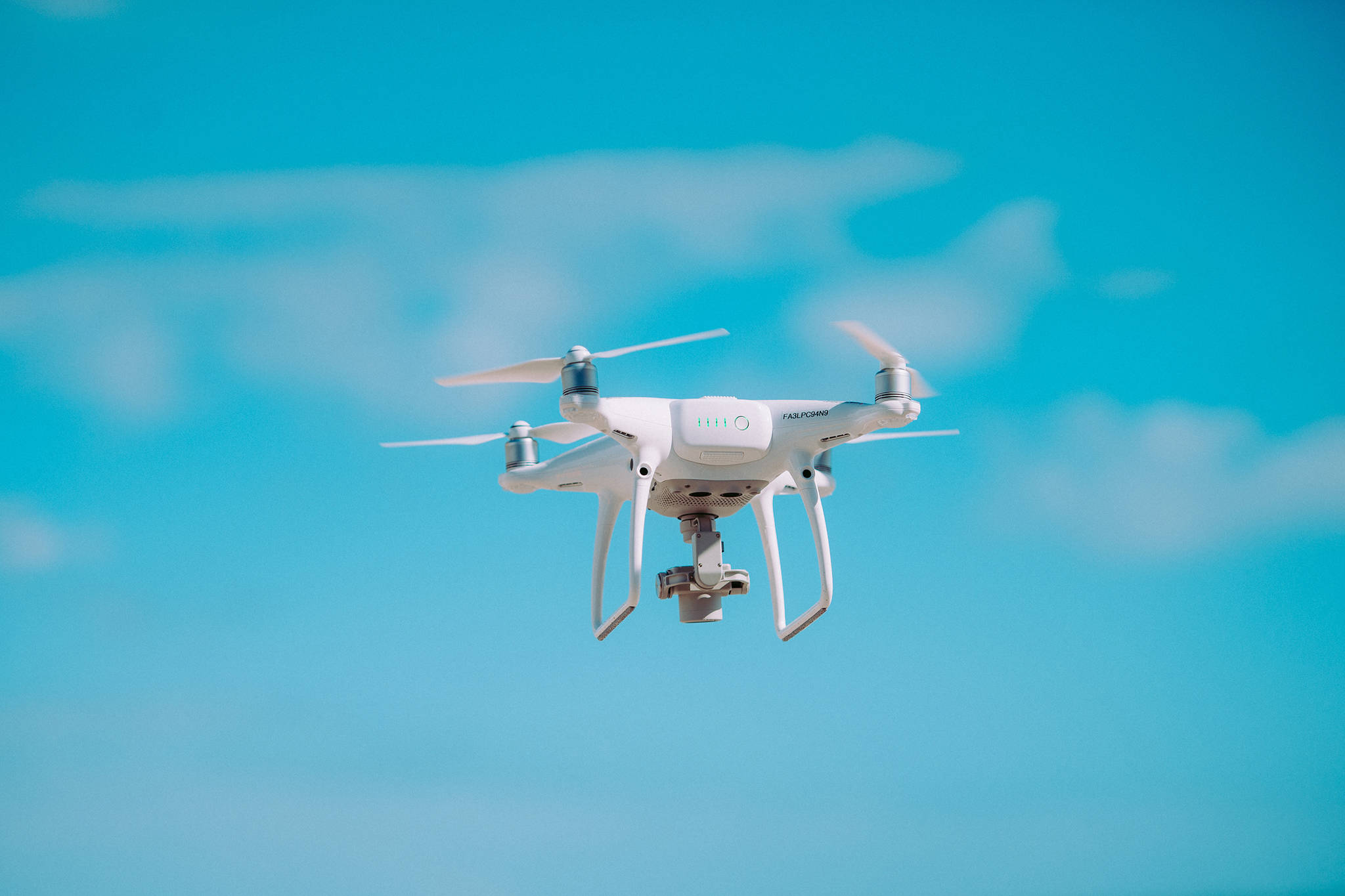Commercial drones aren’t taking off in Juneau the way they are down south in other communities.
Despite a number of possible applications for the remote-controlled pilotless aircraft, Dan Hubert, owner and pilot for Last Frontier Aerial, said they aren’t yet widespread in the area.
“It’s still a mystery,” Hubert said ahead of his Greater Juneau Chamber of Commerce luncheon presentation Thursday at the Moose Lodge. “Some organizations are so into it, some come contract out, and others don’t realize what’s possible.”
Weather, airspace restrictions and registration requirements and underestimating the utility of drones may have to do with it.
Hubert identified those as challenges. He said while drones do well with wind, only top-of-the-line models are beginning to be precipitation proof.
Dave Mesdag, who has taken aeronautic images professionally, said all of the above are why he’s mostly moved away from professional drone photography and now almost exclusively flies for fun.
[Drone Video: Fourth of July Fun]
Hubert said while most of the Mendenhall Valley is within airspace that is restricted by the Juneau International Airport, but Lemon Creek and downtown areas are generally far enough away.
However, drones must be registered and a commercial license is needed. Hubert, who is also a lawyer, said a legal background helped him navigate some of the bureaucracy.
Mesdag said for him that friction made it not worth his trouble.
“I think I’ve made $600 on it in the last couple of years,” Mesdag said.
Plus, Mesdag said there can be public paranoia from neighbors about drones invading their privacy.
Hubert addressed that during his chamber speech. He said drones are already subject to the same laws of cameras, and while it’s a valid concern, it can be overstated.
“People think the stuff going on in their house is a little more interesting than it is,” Hubert said. “If someone was flying by my house too closely, I wouldn’t like it. I’d file a complaint with the FAA and the police.”
Hubert said the pros of drones greatly outweigh the cons, in his experience and listed some of their benefits.
Drones are versatile, he said.
In addition to being useful for taking photos and videos, Hubert said drones are great for geographic information systems, and if they’re equipped with infrared technology, potentially life-saving in search and rescue efforts.
Drones can be used in construction, real estate, insurance and utility businesses among other applications. They can cover terrain a plane or helicopter couldn’t and are useful for surveying 3D structures.
Plus, Hubert, who is pilot, said they’re cheaper than other aircraft.
For example, he said a drone costs about 10 percent as much as a plane and less than 3 percent as much as a helicopter. Plus, charging or changing batteries has less financial impact than fuel and can be done faster if a drone operator has a spare battery.
They also pose less risk to their operator and the people down on the ground.
“Consequently, liability insurance is a lot cheaper,” Hubert said. “I think the pluses are a lot more than the negatives.”
Before you fly
If you get a drone for Christmas, here’s what you know before taking to the skies commercially.
Hubert recommended visiting the FAA’s Know Before You Fly website, which details exact requirements, such as obtaining a remote pilot certificate and registering the device with the FAA.
Some of the most important regulations on the books since 2016 include: those operating drones lighter than 55 pounds must be at least 16 and have a remote pilot certificate or be directly supervised by someone with a certificate, drones may not be flown more than 400 feet above the ground, drones generally may not be operated from a moving vehicle and drones must be operating within sight of the person controlling the drone.
• Contact arts and culture reporter Ben Hohenstatt at (907)523-2243 or bhohenstatt@juneauempire.com.

